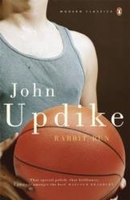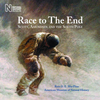-
Home
-
Contributors
-
International
-
Account
-
Information
More From Contributor
Includes:: roads, major trails & railways, although there is some inconsistency in colouring & the extent of classification, e.g. not all maps distinguish seasonal roads. On most maps intermediate road distances are indicated on main routes. Symbols show airports, mosques, mines, oil & gas fields, lighthouses, ruins & significant isolated buildings. Administrative boundaries are marked & latitude & longitude lines are drawn at 1° intervals, with further margin ticks at 1’ intervals. The map legend is in French only on some sheets, & in English & French on others.* The International Map of the World was a project conceived in the early 20th century to compile a world map series at 1:1, 000, 000 through the efforts of participating nations. The value of the program has declined since 1970 & the IMW is no longer regarded as an active international series. ...
- in Ellen's own words. Ellen Macarthur was described in the Observer as 'the first true heroine of the 21st Century'. She's been named Sailor of the Year twice, crowned World Champion, named Sunday Times Person of the Year 2001 & was runner up in the BBC Sports Personality of the Year. Ellen is from Whatstandwell in Derbyshire & lives in Cowes. ...
- the Dakar Rally. Beginning ...

Rabbit, Run
(1932-2009) was born in Shillington, Pennsylvania. He graduated from Harvard College in 1954, and spent a year at Oxford, England, at the Ruskin School of Drawing and Fine Art. From 1955 to 1957 he was a member of staff at ”The New Yorker”. Updike was the author of twenty-one novels as well as numerous collections of short stories, poems and criticism, and is one of only three authors to win more than one Pulitzer Prize.His most famous works are the Harry `Rabbit` Angstrom series, all of which are published in ”Penguin Modern Classics”: ”Rabbit, Run” (1960), ”Rabbit Redux” (1971), ”Rabbit is Rich” (1981) and ”Rabbit at Rest” (1990). If you enjoyed ”Rabbit, Run”, you might like Don DeLillo`s ”Americana”, also available in ”Penguin Modern
Classics”. ”It is sexy, in bad taste, violent and basically cynical. And good luck to it”. (Angus Wilson, ”Observer”). ”That special polish, that brilliance; Updike is among the best”. (Malcolm Bradbury). ”Brilliant and poignant...By his compassion, clarity of insight, and crystal-bright rose, [Updike] makes Rabbit`s sorrow his and our own”. (”Washington Post”).
This page now acts as a permanent archive for this product. Add more information using the comments box below to ensure it can still be found by future generations.
Use our search facility to see if it is available from an alternative contributor.
- Availability: Out Of Stock
- Supplier: Stanfords
- SKU: 9780141187839
Product Description
The first book in his award-winning ” Rabbit” series, John Updike`s ” Rabbit, Run” contains an afterword by the author in ” Penguin Modern Classics”. It`s 1959 & Harry ` Rabbit` Angstrom, one time high school sports superstar, is going nowhere. At twenty-six he is trapped in a second-rate existence
- stuck with a fragile, alcoholic wife, a house full of overflowing ashtrays & discarded glasses, a young son & a futile job. With no way to fix things, he resolves to flee from his family & his home in Pennsylvania, beginning a thous&-mile journey that he hopes will free him from his mediocre life. Because, as he knows only too well, `after you`ve been first-rate at something, no matter what, it kind of takes the kick out of being second-rate`. John Updike (1932-2009) was born in Shillington, Pennsylvania. He graduated from Harvard College in 1954, & spent a year at Oxford, Engl&, at the Ruskin School of Drawing & Fine Art. From 1955 to 1957 he was a member of staff at ” The New Yorker”. Updike was the author of twenty-one novels as well as numerous collections of short stories, poems & criticism, & is one of only three authors to win more than one Pulitzer Prize. His most famous works are the Harry ` Rabbit` Angstrom series, all of which are published in ” Penguin Modern Classics”: ” Rabbit, Run” (1960), ” Rabbit Redux” (1971), ” Rabbit is Rich” (1981) & ” Rabbit at Rest” (1990). If you enjoyed ” Rabbit, Run”, you might like Don De Lillo`s ” Americana”, also available in ” Penguin Modern Classics”. ” It is sexy, in bad taste, violent & basically cynical. & good luck to it”. (Angus Wilson, ” Observer”). ” That special polish, that brilliance; Updike is among the best”. (Malcolm Bradbury). ” Brilliant & poignant... By his compassion, clarity of insight, & crystal-bright rose, [ Updike] makes Rabbit`s sorrow his & our own”. (” Washington Post”).
Reviews/Comments
Add New
Intelligent Comparison
We couldn't find anything!
Perhaps this product's unique.... Or perhaps we are still looking for comparisons!
Click to bump this page and we'll hurry up.
Price History
Vouchers
Do you know a voucher code for this product or supplier? Add it to Insights for others to use.


 United Kingdom
United Kingdom
 France
France
 Germany
Germany
 Netherlands
Netherlands
 Sweden
Sweden
 USA
USA
 Italy
Italy
 Spain
Spain











 Denmark
Denmark